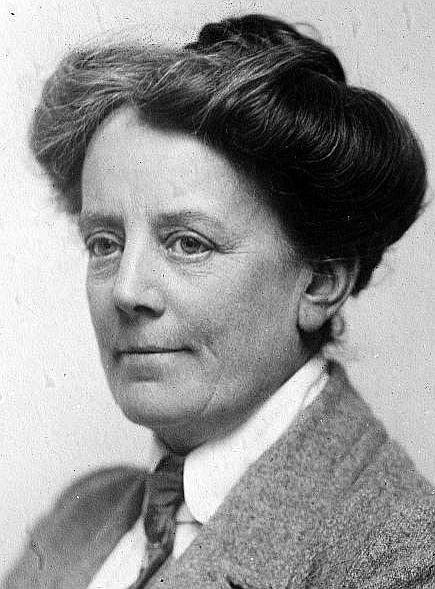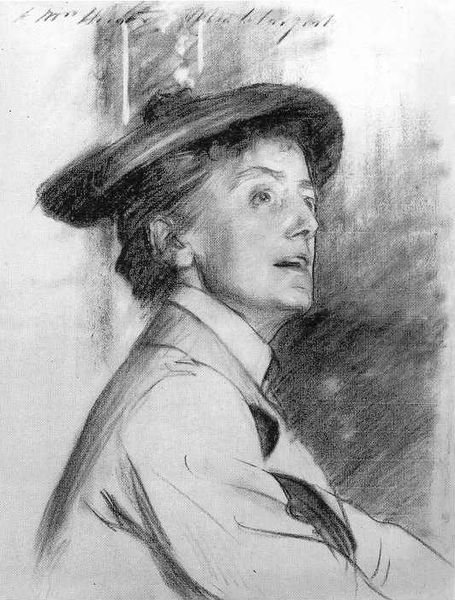<Back to Index>
- Historian James Anthony Froude, 1818
- Composer Ethel Mary Smyth, 1858
- King of Bohemia George of Kunštát and Podĕbrady, 1420
PAGE SPONSOR


Dame Ethel Mary Smyth, DBE (23 April 1858 – 8 May 1944) was an English composer and a leader of the women's suffrage movement.
Smyth was born in Woking, Surrey. J H Smyth, her father, was a Major - General in the Royal Artillery. She was one of eight siblings. Her family was opposed to her making a career in music. She studied with Alexander Ewing when she was seventeen and took an interest in Wagner and Berlioz. After a major battle with her family about it, she was allowed to study music in Leipzig, with Carl Reinecke, amongst others, and then, after leaving the conservatoire, privately with Heinrich von Herzogenberg. While at the conservatory she met some important composers including Dvořák, Grieg and Tchaikovsky, but she considered the tuition substandard and left after a year. Through Herzogenberg she met Clara Schumann and Brahms. Later she wrote her Mass in D in 1891 (in spite of being an atheist), which is very much in the style of Brahms' Ein Deutsches Requiem. She also wrote some German songs in his style and the Seven Short Chorale Preludes.
Ethel Smyth's works included chamber pieces, symphonies, choral works and operas (most famously The Wreckers).
In 1910 Smyth joined the Women's Social and Political Union, a militant suffrage organization, giving up music for two years to devote herself to the cause. Her "The March of the Women" (1911) became the anthem of the women's suffrage movement, though suffragists most often shouted the words, by Cicely Hamilton, rather than actually singing Smyth's tune. When the W.S.P.U.'s leader, Emmeline Pankhurst, called on members to break the windows of anti - suffrage politicians as a protest, Smyth - along with 108 others – did so. She served two months in Holloway Prison. When Thomas Beecham went to visit her there, he found suffragettes marching in the quadrangle and singing, as Smyth leaned out a window conducting the song with a toothbrush.
In 1922 she was created a DBE. She was later a model for the fictional Dame Hilda Tablet in the 1950s radio plays of Henry Reed.
Smyth lived at Frimhurst, near
Frimley Green. Smyth was prone to grand romantic passions, most of them with women. She wrote to Harry Brewster,
who may have been her only male lover, that it was "easier for me to
love my own sex passionately, rather than yours", calling this an
"everlasting puzzle". At age 71 she fell in love with Virginia Woolf, who, both alarmed and amused, said it was "like being caught by a giant crab", but the two became friends.
She was portrayed by Maureen Pryor in the 1974 BBC television film Shoulder to Shoulder. Maureen Pryor had previously played Delius's wife Jelka and Tchaikovsky's mother - in - law in Ken Russell films.